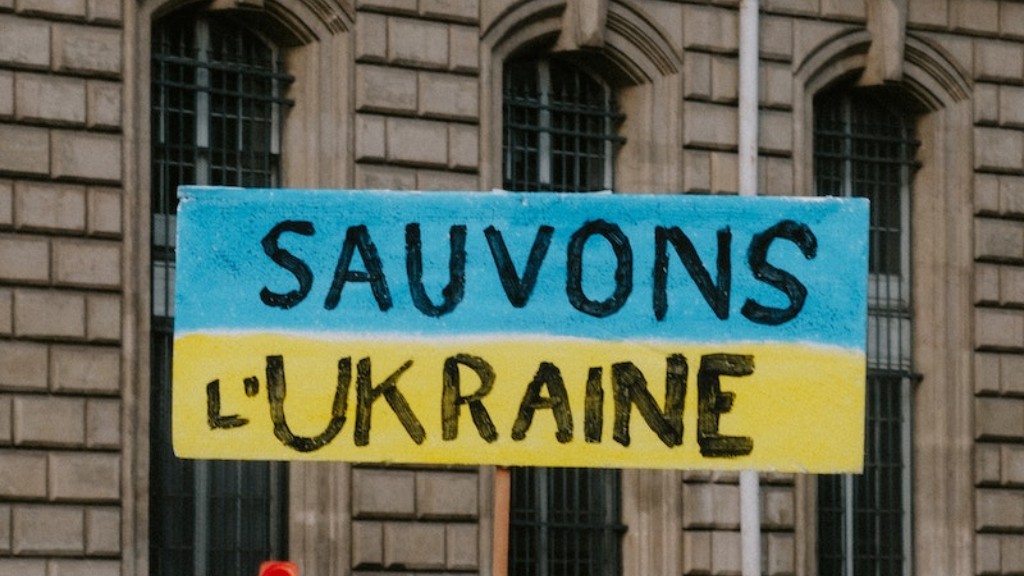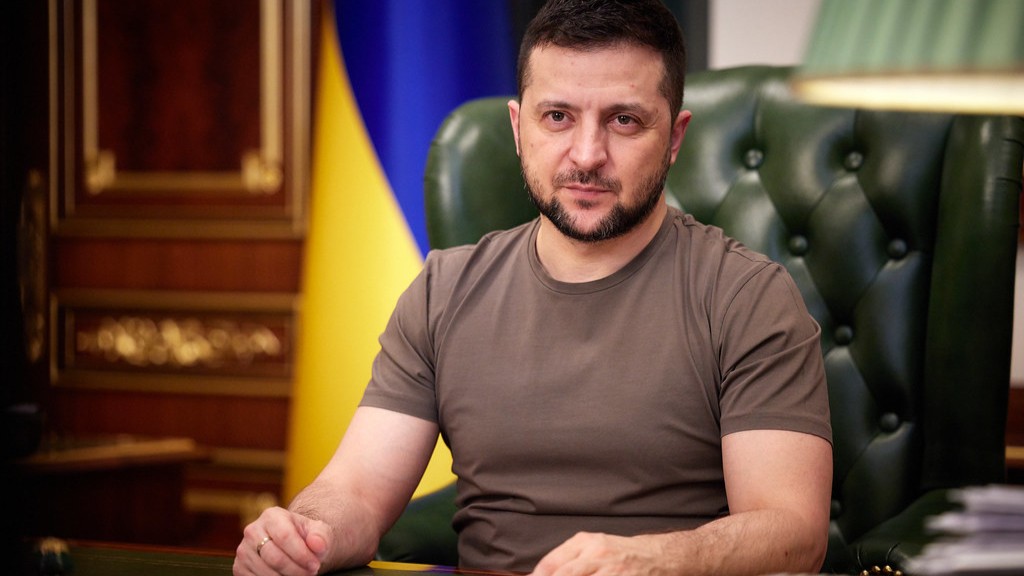The ongoing conflict between Ukraine and Russia began in 2014 following the Russian Annexation of Crimea. Since then, Ukraine has experienced ongoing violence and economic hardship. To date, over thirteen thousand people have been killed and over one million have been displaced. In addition, Ukraine’s economy has been drastically weakened. Despite these circumstances, the US has chosen not to provide military or economic aid to Ukraine.
To understand why the US is not supporting Ukraine, it is important to examine the US-Russian relationship. For decades, the US and Russia have been forming alliances, taking sides during conflicts, and striving for their respective interests. However, Russian aggression towards Ukraine is seen as a threat to US interests in the region. Therefore, the US is aware that providing military aid to Ukraine would further escalate the conflict and risk retaliation from Russia.
In addition, there are political factors that give the US pause when considering military aid to Ukraine. According to experts, the US is not eager to become providing military support to Ukraine because of the potential repercussions from Middle Eastern and Asian countries, who are generally unfriendly to the US. Furthermore, providing military support could harm the US diplomatic relations with Russia, leading to increased tension between the two countries.
Oliver Morrow, a former policy analyst for the US State Department, explains: “The US does not want to take any action that could potentially cause further damage and unrest in the region, and thus it is not providing military assistance to Ukraine.”
Morrow also mentioned economic implications that come with military aid. According to Morrow, if the US were to provide military assistance to Ukraine, it must be aware of the costs that come with it. He notes: “It is well-known that the US has limited financial resources and must use them wisely.” Therefore, providing military aid to Ukraine could pose a financial burden to the US.
Another important factor to consider is the current political climate. The US is in the midst of domestic political turmoil, making it less likely that it will provide military aid to Ukraine. In addition, US leadership is focused on domestic affairs, leaving little room for foreign affairs. This further complicates the situation, as it reinforces the view that providing military aid to Ukraine is not a priority for the US.
Political Rhetoric
Furthermore, the political rhetoric of the US towards Ukraine has also contributed to this situation. In recent years, the US has sought to de-escalate the conflict between Ukraine and Russia. By doing so, the US has sent a signal to Russia that it is not willing to risk a full-fledged military conflict. As a result, Russia has been emboldened,while Ukraine has been denied the support that it needs.
Moreover, the lack of US support for Ukraine can be seen in the statements of US officials. For example, US officials have argued that the US can only support Ukraine diplomatically, rather than militarily, as this would “negatively affect our political relations with Russia”. Such statements indicate that the US is not willing to commit to providing military support to Ukraine.
Reactions From Ukraine
These US statements have reverberated across Ukraine, where many people see the US’s decision to not provide aid as a betrayal of the Ukrainian people. In a statement to the press, Ukrainian president Petro Poroshenko declared: “The United States has a moral responsibility to help Ukraine in its time of need.” This statement underscores the disappointment and sense of betrayal felt by the Ukrainian people.
Ukrainian citizens are frustrated and angry over the US’s unwillingness to provide military or economic aid to Ukraine. This sentiment has resulted in growing anti-American sentiment in Ukraine. As a result, the US’s refusal to provide aid has been met with a sharp rebuke from Ukrainians and other international actors.
International Repercussions
The US’s refusal to provide military or economic aid to Ukraine has significant implications both regionally and internationally. For instance, it signals to international actors that the US is not committed to upholding its obligations. This raises questions about the US’s credibility as a world leader and its commitment to international law.
Furthermore, the US’s decision to not provide aid to Ukraine has impacted other countries in the region, including Russia. Some experts point out that Russia has taken advantage of the US’s inaction, resulting in increased aggression towards Ukraine. Therefore, the US’s decision not to provide aid has in some ways enabled Russia’s destabilizing actions.
Economic Consequences
Finally, the US’s decision to not provide aid to Ukraine has also had serious economic consequences. Ukraine’s economy has been severely weakened due to the ongoing conflict. Without economic aid from the US, Ukraine is in danger of economic collapse. Thus, the US’s failure to provide economic or military assistance is having a devastating impact on Ukraine’s economy.
The lack of US support for Ukraine is a complex issue that has significant implications for the region and beyond. The US’s refusal to provide assistance is motivated by fear of Russia’s retaliation, political and economic costs, and domestic political unrest. The US’s decision not to provide aid has implications for international law and has enabled Russian aggression. Furthermore, it has had a devastating impact on the economy of Ukraine. Thus, in order to protect the interests of all parties involved, a solution must be found that is in the best interest of all involved.
Russian Aggression
Since its annexation of Crimea in 2014, Russia has been gradually increasing its presence in Ukraine. Russia has sent military forces and supplies into Ukraine in order to support pro-Russian forces in the region. This aggressive behavior is also seen in other parts of the world, such as Eastern Europe and the Middle East. This aggressive strategy has caused tensions between Russia and other countries, including the US.
Russia’s aggression is having a detrimental impact on the region. As a result, the US has been hesitant to provide military aid to Ukraine, in fear that it could escalate the crisis between Russia and Ukraine. Furthermore, Russia’s aggression has resulted in a loss of civilian life and increased displacement of people in Ukraine. This has further increased the burden on the Ukrainian government, resulting in an instability in the region.
Furthermore, Russia’s aggressive actions have caused a rift between the US and Russia. This has made it difficult for the US to make an objective decision when it comes to providing military aid to Ukraine. As a result, the US is often left to make a difficult decision that is in the best interest of both parties.
US Leadership
The US’s decision not to provide aid to Ukraine is largely determined by the leadership in the US. Leaders in the US have sought to de-escalate the conflict between Ukraine and Russia. This has led to a policy of non-intervention on the part of the US. Furthermore, the US leadership is focused on domestic matters, making it less likely that they will commit to providing military or economic aid to Ukraine.
As a result, the US’s position on providing aid to Ukraine has been influenced by the US leadership. This has caused frustration amongst Ukrainians, who feel that their government is being ignored. Nonetheless, the US leadership has the difficult task of balancing US interests in the region with the interests of the Ukrainian people.
Possible Solutions
Moving forward, there must be a solution that takes into consideration the interests of all parties involved. The US should recognize the need to provide aid to Ukraine, while also understanding that providing military aid could further escalate the conflict. Therefore, the US should focus on providing economic aid and diplomatic support to Ukraine. Furthermore, the US must be willing to cooperate with other international actors, such as the European Union, in order to find a viable solution.
In addition, the US should be willing to engage in dialogue with Russia. By doing so, the US can communicate its stance on the issue and seek to de-escalate the situation. This dialogue should be based on mutual respect and understanding, as it is mutually beneficial to all parties. Furthermore, the US should be willing to take a stronger stance on the issue in order to ensure that it can protect its interests in the region.
Finally, the US should focus on working with the Ukrainian government in order to provide economic aid and diplomatic support. The US should recognize the importance of providing economic and diplomatic assistance to Ukraine, as this could help stabilize the region and ensure the rights of the Ukrainian people. In addition, the US should focus on rebuilding the Ukrainian economy, as this will help the Ukrainian people recover from this crisis.





